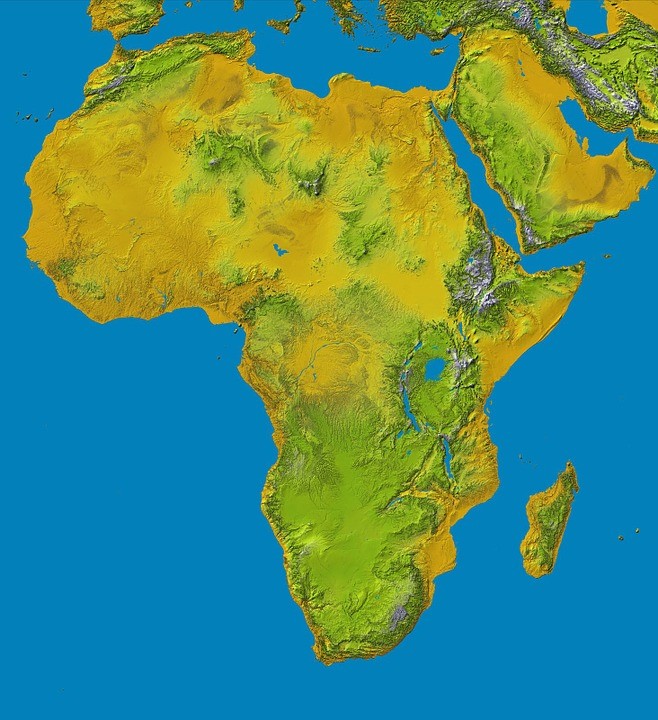As the Russian and Ukrainian forces gear up for the spring offensive, all is not quiet elsewhere. It is an open secret that the Kremlin’s Wagner Group is operating in Africa with thousands of mercenaries active in a number of countries. Often labeled as “Russian instructors” these soldiers are supporting African government troops in places like the Central Africa Republic (CAR), where 1,890 are involved in the ongoing civil war. In Libya, over 1,200 Wagner mercenaries are fighting with Rebel leader Khalifa Hifter. Mali’s anti-Western military junta includes hundreds of Wagner Group fighters, many of whom have been accused of gross human rights violations, according to David Ehl, writing in AllAfrica.com. Their reach has grown over time from that of a private military contractor into a large business organization with alliances among many companies across the African continent.
During the February Munich Security Conference African analyst Julian Rademeyer, who works for the Global Initiative against Transnational Organized Crime (GI-TOC), said that the Group is a vehicle for Russian influence operations and “…operates in this legal gray zone between illicit activities and more legal illicit activities.” Referring to a recent GI-TOC report, Rademeyer says the Wagner Group is “… the most influential Russian actor operating in Africa today, and that its activities and the network of front companies that bolster it are a malign influence on the continent.”
Although Russia is actively involved in the war in Ukraine, it has not stopped its malevolent activities elsewhere in the world. Sergey Lavrov, Russia’s Foreign Minister, has made state visits to African countries to discuss arms deals, military cooperation and offers of food and fertilizer in return for cooperation in UN votes. It appears to be working, as Russia has obtained 15 abstentions from Africa countries on resolutions concerning its war in Ukraine. Wagner’s founder, Yevgeny Prigozhin, is loyal to Putin and aids his war effort. The Group has extended its reach beyond physical involvement since 2014 to include a role in a newer organization called the Internet Research Agency. This affiliate is responsible for aiding in Russia’s disinformation campaigns by infiltrating social media, especially in Western societies. GI-TOC research, notes Rademeyer, has found that the Wagner Group has also engaged in campaigns to influence African populations, in general.
Gabriel, a pseudonym used by a representative of the All Eyes on Wagner research collective, which monitors Wagner Group worldwide, says the Group is allowed to operate mostly outside of Russia and that when on the ground often belongs to subsidiary companies. He adds that “There is an approval from the Kremlin every time that the Wagner brand develops its activities in Africa.” All Eyes on Wagner reports that the group has partnered with 11 European media outlets and is raking in huge profits from logging tropical timber in 722 square miles of CAR territory. Another so-called subsidiary is mining gold from the Ndassima mine in the country. They import heavy mining equipment through the Cameroonian seaport of Douala. Gabriel says that up to three truck convoys are organized weekly from Bangui to Douala to transport the raw materials out. The convoys are escorted by heavily armed Wagner Group mercenaries. For cash poor African states, the Wagner Group is a positive asset as officials can barter the raw material mined for the Group’s protection in transporting it.
Although some Wagner Group mercenaries have been pulled out to support the war in Ukraine, it continues to expand and diversify its African operations. Recently in the CAR, it forced the French sugar company SUCAF out of the market, says Joseph Bendounga, head of the MDREC opposition party there.
He points out the Wagner Group is “… in the process of framing the French brewery Castel for supporting and financing terrorist forces… In all areas that bring in money, including customs and taxes, the Russians are the masters.” This includes beer and other liquor. A spokesperson for the Russian Embassy in the Central Africa Republic told DW.com that “It’s going well, because drinks made according to Russian recipes are very popular in the Central African Republic,” and that popularizing Russian culture and doing business with the CAR population is a priority. A so-called private investor can do what he wants, the spokesman said: “After all, this is the law of the free market.”
European officials point out that Wagner Group is also penetrating new mineral-rich areas by exploiting the exit of Western powers and creating alliances with local fighters. “The concern is that Wagner will keep metastasizing and growing within an African context unless there are interventions to prevent those influences, and also unless European partners and countries work far better with their African counterparts,” according to Rademeyer. Earlier this year, the US Treasury Department designated the group as a transnational criminal organization over its actions in combat operations in Ukraine on behalf of Russia.
Although they may have fewer mercenaries in Africa, the intensity and breadth of Wagner’s operations are continuing to expand despite attempts to limit their activities. Russia, as a result, is gaining influence and needed support for its war effort in Ukraine. One senior US official admitted that Washington believes Wagner’s founder, Yevgeny Prigozhin, is also aggressively planning to destabilize the Chadian transition government and has offered Chadian rebels’ material and operational support to execute a plot, which may include plans to eliminate Chadian Transition President Mahamat Idriss Deby, in order to seize control of the government of Chad.” The Wagner Group, run by Vladimir Putin’s oligarch, is becoming more dangerous and pervasive in Africa this spring, despite attempts to expose their operations.
Daria Novak served in the U.S. State Dept.
Illustration: Pixabay
